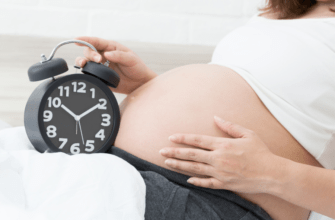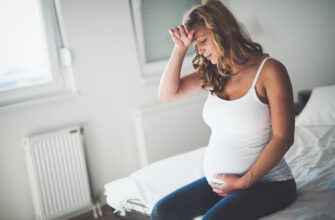Pregnancy is a wonderful experience, but it can also be a time of uncertainty and concern, especially when you experience bleeding during pregnancy. Although bleeding can be a sign of a serious problem, it can also be a harmless symptom. In this article, we will discuss the top 10 causes of bleeding during pregnancy.
1. Implantation Bleeding
Implantation bleeding occurs when the fertilized egg attaches to the lining of the uterus, causing slight bleeding. This usually happens around 10 to 14 days after conception and is usually light in nature.
2. Miscarriage
Unfortunately, bleeding during pregnancy can be a sign of a miscarriage. Miscarriage is the loss of a pregnancy before the 20th week. Symptoms of a miscarriage include vaginal bleeding, cramping, and the passing of tissue from the vagina.
3. Ectopic Pregnancy
An ectopic pregnancy is when the fertilized egg implants outside of the uterus, usually in the fallopian tube. This can cause vaginal bleeding, abdominal pain, and other symptoms. Ectopic pregnancy is a serious condition and requires immediate medical attention.
4. Molar Pregnancy
A molar pregnancy is a rare type of pregnancy where a non-viable fertilized egg implants in the uterus. This can cause bleeding, cramping, and other symptoms. Molar pregnancy requires immediate medical attention as it can lead to serious complications.
5. Cervical Changes
During pregnancy, the cervix undergoes changes to prepare for delivery. These changes can cause bleeding, especially after intercourse or a pelvic exam.
6. Infection
Infection during pregnancy can cause bleeding, fever, and other symptoms. Infections can range from mild to severe and require prompt medical attention.
7. Placenta Previa
Placenta previa is a condition where the placenta implants low in the uterus, covering the cervix. This can cause bleeding, especially in the second or third trimester. Placenta previa requires close monitoring by a healthcare provider.
8. Placental Abruption
Placental abruption is a serious condition where the placenta detaches from the uterine wall, causing vaginal bleeding and abdominal pain. This can lead to complications for both the mother and baby and requires immediate medical attention.
9. Uterine Rupture
Uterine rupture is a rare but serious complication that can occur during pregnancy or labor. This can cause vaginal bleeding, abdominal pain, and other symptoms. Uterine rupture requires immediate medical attention.
10. Cervical Polyps
Cervical polyps are growths on the cervix that can cause bleeding, especially during intercourse or a pelvic exam. Although cervical polyps are usually harmless, they should be evaluated by a healthcare provider.
Conclusion
Bleeding during pregnancy can be scary, but it is important to remember that not all bleeding is a sign of a serious problem. It is always best to consult a healthcare provider if you experience bleeding during pregnancy, as they can determine the cause and provide appropriate care. With prompt medical attention, most pregnancy-related complications can be successfully treated.











